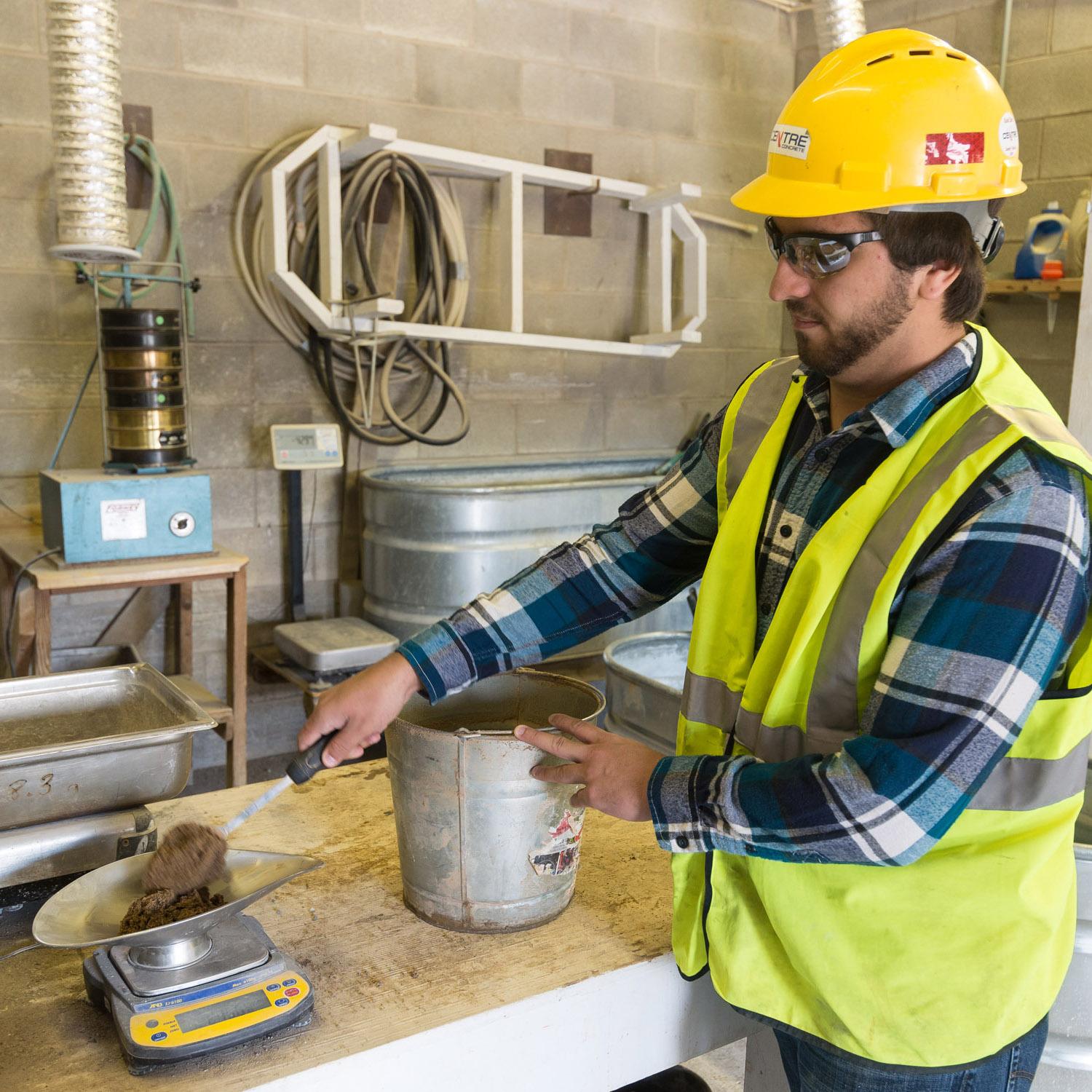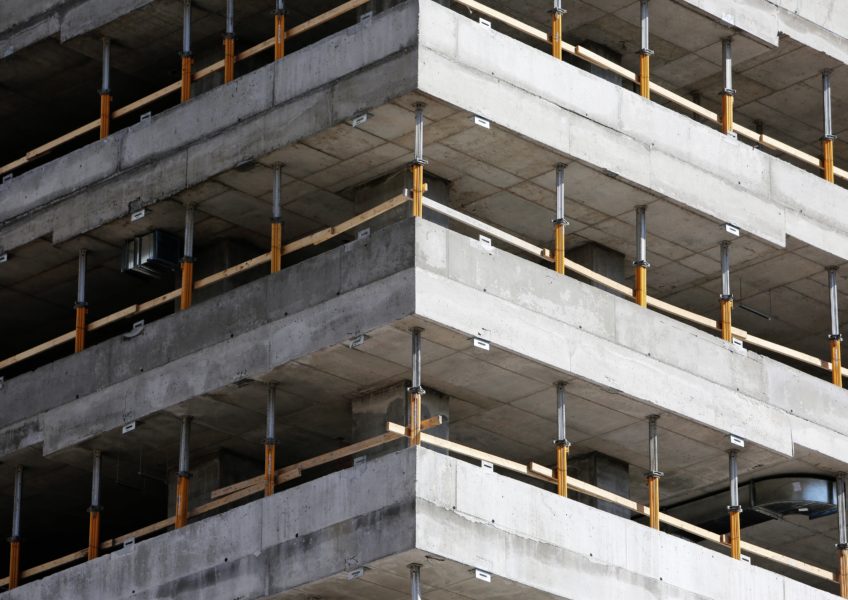How to Make the Most of West Coast General Engineering commercial concrete Rancho Cucamonga for Your Business Build
How to Make the Most of West Coast General Engineering commercial concrete Rancho Cucamonga for Your Business Build
Blog Article
The Necessary Duty of Concrete Foundation in Structural Integrity and Durability
When it concerns developing a home, the foundation is much more vital than you may assume. Concrete structures provide unparalleled strength and sturdiness, guaranteeing your framework can stand up to different ecological obstacles. Without a solid base, you run the risk of prospective issues like shifting or cracking, which can compromise security and value. Understanding the nuances of concrete structures can be the secret to protecting your investment for several years ahead. So, what should you consider next?
Understanding the Importance of Concrete Foundations
Concrete structures are crucial to the overall security of any kind of framework, as they give the essential assistance needed to withstand numerous tons and environmental problems. When you think of constructing a home or an industrial space, the structure is the very first thing you need to think about. It acts as an obstacle against dampness, safeguarding your residential property from water damage. A well-placed concrete foundation additionally avoids settling and changing, which can cause splits in walls and floorings. You'll want to ensure that the foundation is properly created and enhanced, as this impacts the long life of your building. Furthermore, a strong foundation can improve energy effectiveness by lowering air leaks. Keep in mind, neglecting the value of a concrete structure can lead to expensive fixings down the line. So, buying a high quality structure upfront is important for the stability and durability of your structure.
Benefits of Concrete Foundations for Architectural Stability
While many elements contribute to a building's structural stability, concrete foundations use unparalleled longevity and toughness. You'll value that concrete can withstand extreme weather, resisting both wetness and temperature changes. This strength means your framework is much less most likely to experience fracturing or changing over time, which can compromise its safety.Additionally, concrete's inherent weight supplies a strong base, avoiding movement during natural occasions like quakes or floodings. When you select a concrete foundation, you're likewise opting for reduced upkeep; unlike timber, it won't rot or draw in bugs, conserving you time and money in repairs.Moreover, concrete's fire resistance uses included security, ensuring your structure can sustain heats without substantial damages. Generally, buying a concrete foundation suggests you're focusing on the long-lasting stability and honesty of your structure, making it a smart choice for any kind of building and construction task.
Typical Types of Concrete Foundations
When it comes to constructing foundations, understanding the usual kinds of concrete foundations can help you make informed selections for your job. The most widespread types consist of slab-on-grade, crawl area, and full cellar foundations.A slab-on-grade structure is a basic, affordable option, where a thick concrete piece is poured straight on the ground. This type functions well in warm environments, as it lessens warm loss.Crawl room foundations elevate the home somewhat above ground, permitting for ventilation and accessibility to plumbing and electric systems. This style can help stop moisture issues.Full cellar foundations use additional living or storage area while providing exceptional structural assistance. They call for more excavation and are typically made use of in colder climates to avoid frost heave.
Aspects to Take Into Consideration When Designing a Concrete Structure

Ideal Practices for Setting Up Concrete Foundations
When you're installing a concrete structure, appropriate site preparation is important to assure stability (West Coast General Engineering commercial concrete Rancho Cucamonga). You'll also require to recognize reinforcement techniques to improve strength and longevity. Finally, don't forget the curing process, as it plays a basic duty in achieving a solid structure
Site Preparation Significance
It might seem uncomplicated, correct site preparation is crucial for guaranteeing a strong and durable concrete structure. Beginning by removing the area of any debris, greenery, or natural product that might compromise the structure's stability. Next, examine the soil kind and compaction; you might require to excavate or include materials to develop a stable base. Degree the ground to ensure also weight distribution and stay clear of resolving issues later. Setting up correct drain systems is additionally vital to avoid water buildup, which can compromise the structure in time. Ultimately, mark out the foundation's measurements precisely to lead the pouring procedure. By following these steps, you'll establish the stage for a successful concrete structure that stands the test of time.
Support Strategies Described
As soon as the site is effectively prepared, the next step in assuring a durable concrete structure entails implementing efficient support strategies. You ought to begin by using steel rebar, which supplies tensile toughness and helps avoid fracturing. Lay the rebar in a grid pattern, making sure it rises making use of spacers to maintain appropriate protection. In visite site addition, take into consideration using wire mesh for additional this contact form assistance, specifically in areas based on hefty tons. Do not neglect to tie the rebar intersections safely with cable. For bigger structures, fiber reinforcement can enhance toughness, reducing the risk of contraction splits. Always follow local building ordinance and guidelines to guarantee compliance. By using these reinforcement strategies, you'll greatly boost your foundation's strength and longevity, laying a solid foundation for your framework.
Treating Process Essentials
To guarantee your concrete structure treatments effectively, it is necessary to keep appropriate wetness and temperature conditions instantly after pouring. Beginning by covering the surface area with a wet cloth or plastic bed linen to maintain wetness. This keeps the concrete moisturized, stopping fractures and ensuring toughness. You must additionally check the temperature level; optimal curing problems are in between 50 ° F and 90 ° F. If it's too warm, mist the surface regularly to stop quick evaporation. For cold climate, think about using shielding blankets to keep warmth. Aim for a treating period of at the very least seven days, as this is essential for ideal strength growth. By following these best practices, you'll improve your foundation's durability and long life, guaranteeing architectural integrity for several years to come.
Upkeep of Concrete Foundations for Durability
To maintain your concrete foundation solid and lasting, routine inspections are necessary. You ought to additionally guarantee efficient water drainage services remain in place to stop water damages. If you find any kind of cracks, addressing them without delay will save you from bigger issues down the line.

Regular Inspections and Analyses
While normal assessments and analyses could appear like a duty, they're necessary for keeping the stability of your concrete foundation. By routinely checking for splits, changes, or indications of wear, you can catch potential issues before they rise right into expensive repair work. Search for any type of water pooling around the foundation or unusual settling, as these can signal underlying troubles. It's additionally smart to monitor any adjustments in your house's framework, like doors that stick or windows that don't open smoothly. Keeping a document of your evaluations aids track modifications with time, enabling for aggressive maintenance. check my source Inevitably, these evaluations assure your foundation stays secure, supporting the durability and safety and security of your entire structure. Do not forget this important facet of homeownership!
Effective Drain Solutions
Regular assessments can reveal problems like drainage troubles that might jeopardize your concrete structure's stability. To avoid water buildup, guarantee your rain gutters and downspouts direct water away from the structure. Installing French drains can successfully redirect surface area and groundwater, minimizing pressure on your foundation wall surfaces. Furthermore, rating the soil around your home aids guarantee that water streams away, as opposed to pooling near your foundation.Consider utilizing sump pumps in locations prone to flooding, as they actively eliminate excess water. Routinely look for obstructions in drain systems and clear them promptly. You'll safeguard your structure's integrity and durability by taking these aggressive steps. Remember, effective drain solutions are important for preserving a solid, sturdy concrete structure.
Motivate Split Services
When you notice cracks in your concrete structure, resolving them without delay is essential for maintaining its long life. Tiny splits can promptly advance right into bigger problems, jeopardizing the structural integrity of your home. Routinely inspect your foundation for indicators of damages, such as straight or vertical cracks. If you identify any type of, don't wait-- fix them immediately. You can use epoxy shots or concrete patching compounds, which work for sealing splits. Always follow the supplier's guidelines and think about seeking advice from an expert for considerable damages. Bear in mind, timely repairs not just improve your foundation's longevity however likewise save you cash in the future by protecting against a lot more comprehensive repairs down the line. Keep positive, and your structure will remain solid and secure.
Resolving Typical Concerns With Concrete Foundations
Concrete structures can deal with various problems over time, making it essential to determine and resolve them quickly. Among the most usual issues is fracturing, which can happen as a result of temperature variations or working out soil. If you observe cracks, it's important to analyze their size and deepness; small splits can frequently be secured, while larger ones may require expert evaluation.Water intrusion is one more major problem. Excess moisture can bring about mold growth and architectural wear and tear. Guarantee appropriate water drainage around your foundation to mitigate this danger. In addition, look for indications of changing or bowing walls, as this can suggest underlying concerns with your structure's stability.Regular evaluations are basic to capture these problems early. If you spot any type of worrying indicators, do not hesitate to get in touch with a structure expert. By staying positive, you can keep the honesty and longevity of your concrete foundation, ensuring your home stays secure and secure.
Often Asked Inquiries
How Does Soil Type Affect Concrete Foundation Performance?
Soil type significantly influences concrete foundation performance. If you have actually obtained large clay, for circumstances, it can create changing and splitting. Sandy dirt could cause clearing up. Recognizing your dirt assists ensure a secure structure.
Can Concrete Foundations Be Fixed if Damaged?
Yes, you can repair damaged concrete foundations. Relying on the level of the damages, methods like epoxy injection or slab jacking can restore security. It's ideal to get in touch with an expert for efficient remedies.
What Is the Normal Life-span of a Concrete Foundation?
A concrete structure usually lasts 30 to 100 years, depending on factors like dirt conditions, climate, and upkeep. You'll want to watch on it to assure it stays healthy throughout its life expectancy.
Are There Choice Materials to Concrete for Foundations?
Yes, there are alternatives to concrete for structures, like steel, wood, or even recycled products. Each option has one-of-a-kind benefits and drawbacks, so you must consider your job's details requirements when choosing the ideal material.
Exactly How Does Environment Effect Concrete Structure Toughness?
Climate substantially affects concrete foundation toughness (West Coast General Engineering concrete foundation). Severe temperatures, wetness, and freeze-thaw cycles can damage the material, resulting in splits and structural problems. You must consider local environment problems when planning your foundation to ensure lasting performance
Report this page